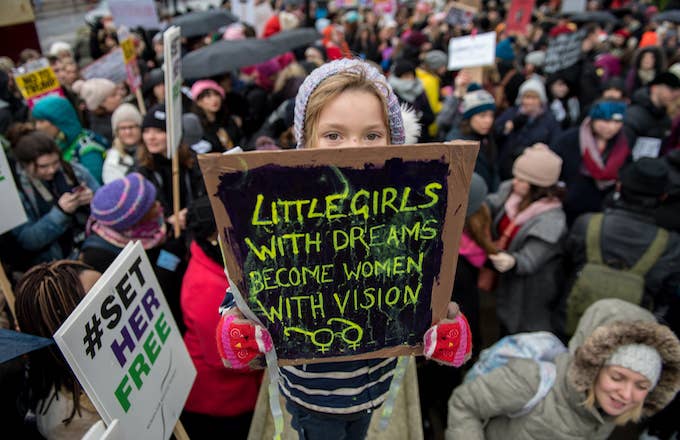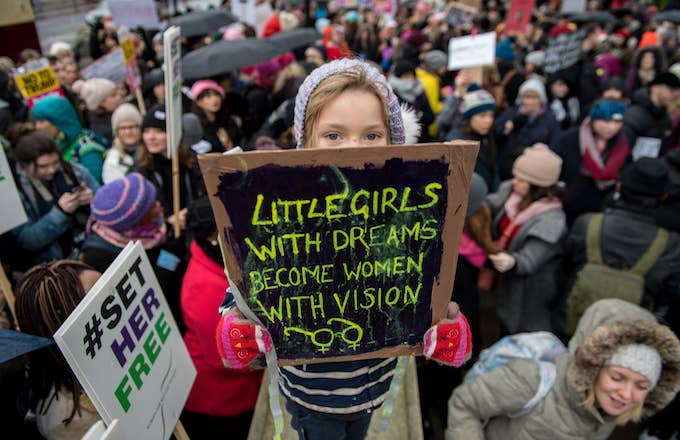
There are so many brands that take such different approaches to celebrating International Woman’s Day. McDonald’s, for example, thought it would be cool to turn their logo upside down, while some European airlines put women in charge of their flights for the day. Sometimes it can be easy to forget what the day actually stands for. It’s not a day to write a gushy social media post to all the “strong women” in your life. While it is a day to honor the women in your life and community who make a difference in your life, it’s also a moment to take notice of all the ways gender inequality still puts women at a disadvantage in nearly all aspects of everyday life. This reality is made all the more urgent by the growing global movements like Time’s Up and #MeToo. Millions of women across the world took to the streets today to support the International day in their honor and to demonstrate how much work they feel still needs to be done.
The Guardianreported that 5.3 million people walked out of work in Spain on Thursday to protest the gender disparities in sexual and domestic violence, as well as income. In both metrics, women are still disadvantaged in disproportionate amounts. The BBC reported that actress Penélope Cruz canceled all of her previously scheduled events to join the strike, which was also attended by Madrid Mayor Manuela Carmena and Barcelona Mayor Ada Colau.
Similar strikes happened throughout Europe. Women’s Strike Assembly UK, for example, called on women to wear red and bring pots, pans, and an umbrella to their strike, which involved participating in local marches, demonstrations, lunchtime strikes and walk-outs across England.
Today #WeStrike! Wear red, bring an umbrella & join us! ⚡️
Share your reasons for striking #WhyIStrike
See you on the streets!
For more info: https://t.co/lPtvH5Gvqs // https://t.co/ftQPdej4jI#WomenStrike2018 pic.twitter.com/Z56fvBLNpA
Even France got in on the action, with one newspaper being sold at a discounted 2 euros for women instead of €2.50 for men to raise awareness of the country’s 25 percent pay gap between the two genders. It’s a thoughtful move for a country that saw some of its most famous stars make eyebrow-raising statements that were in direct opposition to the #MeToo movement with a letter defending men.
There were also marches in Italy, where women in many cities were also encouraged to strike. Actress Asia Argento, one of the women who accused Harvey Weinstein of sexual assault, participated in a march in Rome alongside Rose McGowan, who has accused Weinstein of raping her.
In New York City, a 1-hour work stoppage was also organized by the International Women’s Strike organization. Feminist website Jezebel participated in a sitewide strike between 4 and 8 p.m. ET. The act was in solidarity with “striking women, especially trans women, women of color, poor women, sick women, and all those women who facilitate our societal structure with both paid and unpaid labor.”
Although these are just small acts of protest that only last one day, the whole word, and particularly the United States, has seen a growing movement of public demonstrations in recent years, including the notable Women’s March that brought out hundreds of thousands of women and men to the streets in 2017 and 2018.

